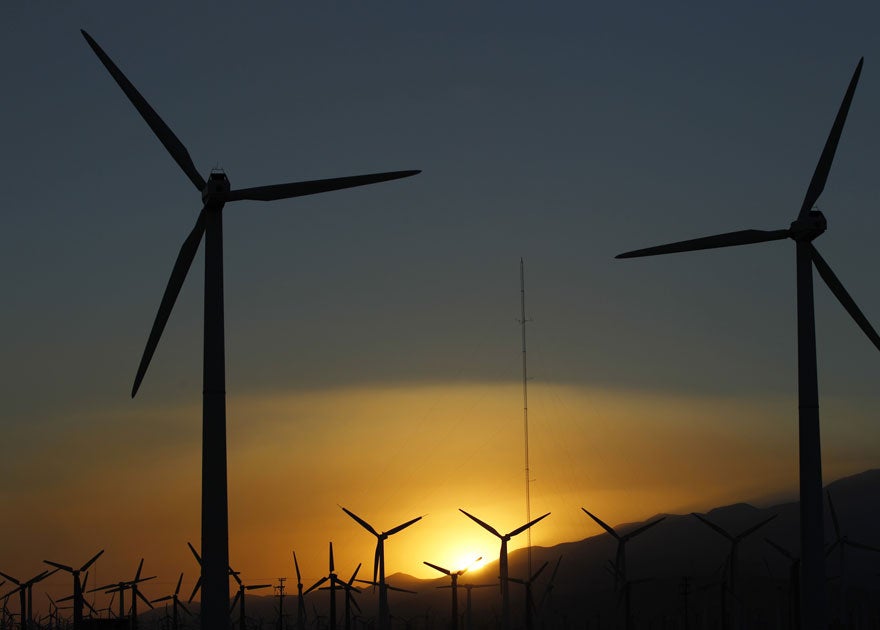Plans for Atlantic Array wind turbines pulled by developer
Energy giant RWE has pulled the plug on plans to develop one of the largest offshore wind turbines

Your support helps us to tell the story
From reproductive rights to climate change to Big Tech, The Independent is on the ground when the story is developing. Whether it's investigating the financials of Elon Musk's pro-Trump PAC or producing our latest documentary, 'The A Word', which shines a light on the American women fighting for reproductive rights, we know how important it is to parse out the facts from the messaging.
At such a critical moment in US history, we need reporters on the ground. Your donation allows us to keep sending journalists to speak to both sides of the story.
The Independent is trusted by Americans across the entire political spectrum. And unlike many other quality news outlets, we choose not to lock Americans out of our reporting and analysis with paywalls. We believe quality journalism should be available to everyone, paid for by those who can afford it.
Your support makes all the difference.Energy giant RWE has pulled the plug on plans to develop one of the world's largest offshore wind farms near the north Devon coast amid concerns that political pressure over household bills could stifle investment.
The German group, which also owns Big Six supplier npower, said the costs of the Atlantic Array project in the Bristol Channel were "prohibitive in current market conditions" and it was “not the right time” to build the proposed farm.
The Government said RWE's decision to shelve plans for the Atlantic Array project, whose cost is reportedly £4 billion, was based "on purely technical grounds".
Energy firms are under pressure after steep recent price hikes in gas and electricity tariffs but argue that they need profits to be able to invest in power generation including from renewable sources.
Latest figures revealed Big Six profits from household supply multiplied five-fold in three years, sparking further anger.
RWE Innogy, which was developing the site, said it presented significant challenges including deep waters and adverse seabed conditions and it would focus instead offshore projects that are more technically and economically viable.
It said the challenges had been identified from "intensive research", but said new technologies could open it up again in the future.
Paul Cowling, director of offshore wind at RWE Innogy, said: "This is not a decision we have taken lightly.
"However, given the technological challenges and market conditions, now is not the right time for RWE to continue to progress with this project."
Mr Cowling said RWE was still backing offshore wind and would be pressing ahead with other projects off Britain's coastline.
But he added: "The commercial reality means that, in the current market conditions, overcoming the technical challenges within the Bristol Channel zone would be uneconomic for RWE at this time."
The 240-turbine project had drawn criticism from environmentalists concerned about its impact on marine wildlife and campaigners who have branded 720ft (219m) high turbines unsightly.
Trade organisation RenewableUK said the decision was disappointing but not surprising as the project was "always going to be technically challenged" because of its deep-water, seabed location.
Chief executive Maria McCaffery told the BBC Radio 4 Today programme: "When the whole energy sector is under such pressure to reduce costs, they really can't take the chance of deploying in a place where it would be more expensive because ultimately that would have to be translated into fuel bills."
A spokesman for the Department of Energy and Climate Change said: "The decision not to proceed with the development is a matter for RWE.
"It was made on purely technical grounds and reflects the many complex challenges of constructing offshore wind farms.
"The UK still expects to deploy significant amounts of offshore wind by 2020 and we remain well placed to meet our 2020 renewable energy target."
Additional reporting by Press Association
Join our commenting forum
Join thought-provoking conversations, follow other Independent readers and see their replies
Comments